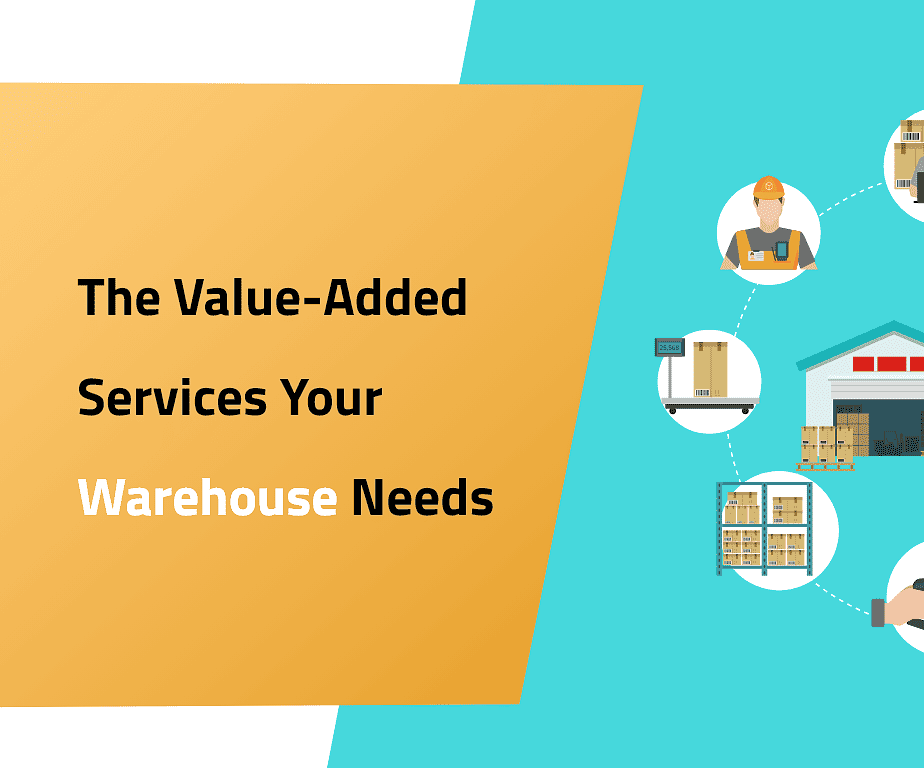What is a Warehouse Management System?
A Warehouse Management System (WMS) is an essential link to the supply chain process that utilises technology to increase efficiency and productivity and provide information about warehouse operations in real time.
Value-added services in logistics allow businesses to provide more comprehensive benefits, which has become an essential tool in increasing customer satisfaction. Using these services is especially vital in operations based on customer trust. Supply chain and logistics are some of the most competitive sectors and adding value can give your organisation an edge.
What is a Value-Added Service (VAS)?
The term value-added services refer to the additional distribution and warehousing services offered by third-party logistics providers to businesses looking to outsource their supply chain operations.
Whenever logistics providers add value the right way, it affects the level of customer satisfaction, while indirectly increasing their bottom line. Service providers know the ins and outs of the business and they can assist companies in responding to customers’ needs. Companies partnering with value-added logistics providers can focus on their core business and work on being more competent in the market. Value-adding is not a one-time task — it requires continuous maintenance and 3PLs are working toward providing value-added services in conjunction with their more traditional offerings.
Adding value to your packaging and transportation process can give your company an edge in the market and enable you to stand out from the competition. Service providers offer a range of contributions that add value to your brand, but how do they do that? And is it advantageous? Let’s look at some offerings and how they can benefit your organisation.
What Are Warehouse Value-Added Services (VAS)?
Warehouse value-added services are additional services that a warehouse or third-party logistics (3PL) provider can offer to their clients beyond the standard storage and shipping services. These services can be customised to the client’s needs and can include anything from repacking and reworking products to material screening and postponement services.
Containment services:
Containment services involve keeping products in a specific area or “containment” until they are ready to be shipped. This can help to improve quality control and prevent damage to products.
Reworking:
Reworking involves taking products that are not up to standard and making them compliant with the client’s specifications. This can include anything from removing damaged goods to fixing packaging errors.
Labelling and relabelling:
Labelling and relabelling services involve applying labels to products or changing the labels on products. This can be done for a variety of reasons, including updating the label to reflect a change in the product or applying a special label for promotional purposes. However, going the extra mile to ensure that products are properly labelled and packaged can set you apart from your competitors. Offering custom labelling or packaging options can help your customers stand out in the market and improve their brand recognition.
Screening and inspection:
Screening and inspection services involve checking products for defects or damage. This can help to ensure that only quality products are shipped to the client. Ensuring that products are of the highest quality is critical for any business. This service can be especially valuable for customers in highly regulated industries like food and pharmaceuticals.
Repacking:
Repacking services involve packing products into different types of packaging, such as changing from bulk packaging to retail-ready packaging. This can be done to meet the client’s needs or to protect the products during shipping.
Benefits of Value-Added Services in Warehouses
There are many benefits to using warehouse value-added services, including:
Improved quality:
Value-added services can help to increase the efficiency of the warehouse operation. This can lead to reduced costs and improved profitability.
Storage needs taken care of:
When businesses use value-added services, they can be assured that their storage needs will be taken care of. This can free up time and resources that can be used for other purposes.
More time to focus on business expansion:
When businesses use value-added services, they can free up time to focus on expansion. This can lead to increased sales and growth.
Conclusion:
LogixPlatform, Value-Added Services
At LogixGrid, we understand the importance of value-added services in today’s logistics industry. That’s why we offer a comprehensive logistics software solution that can help your warehouse provide these services to your customers. Our software can automate and streamline your warehouse operations, making it easier for you to offer assembly and kitting, labeling and packaging, quality control and inspection, reverse logistics, and cross-docking services. With our software, you can improve efficiency, reduce errors, and increase revenue, all while providing top-notch service to your customers.
We have a team of experienced professionals who are dedicated to providing the best possible service to our clients. If you are looking for a value-added service provider that can help you improve the quality of your products, increase the efficiency of your warehouse operation, take care of your storage needs, and more, then look no further than LogixPlatform. We are a provider of value-added services in the warehouse and logistics industry. Contact Us for further details


